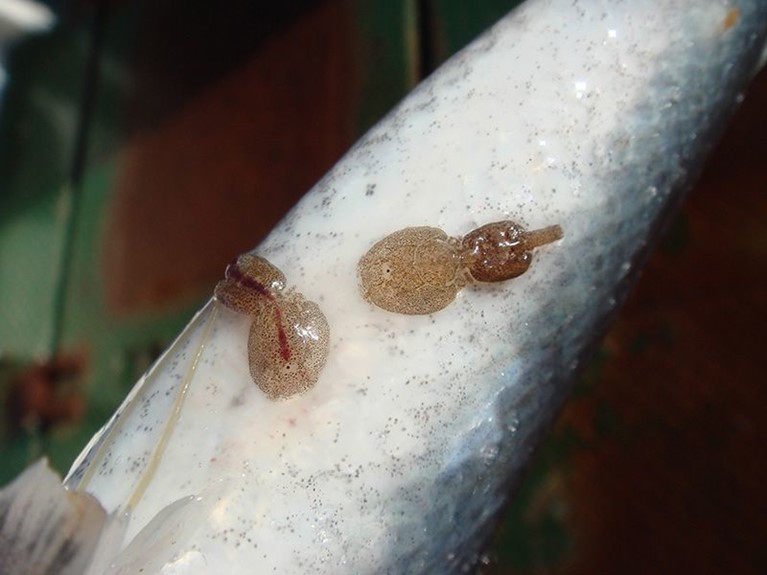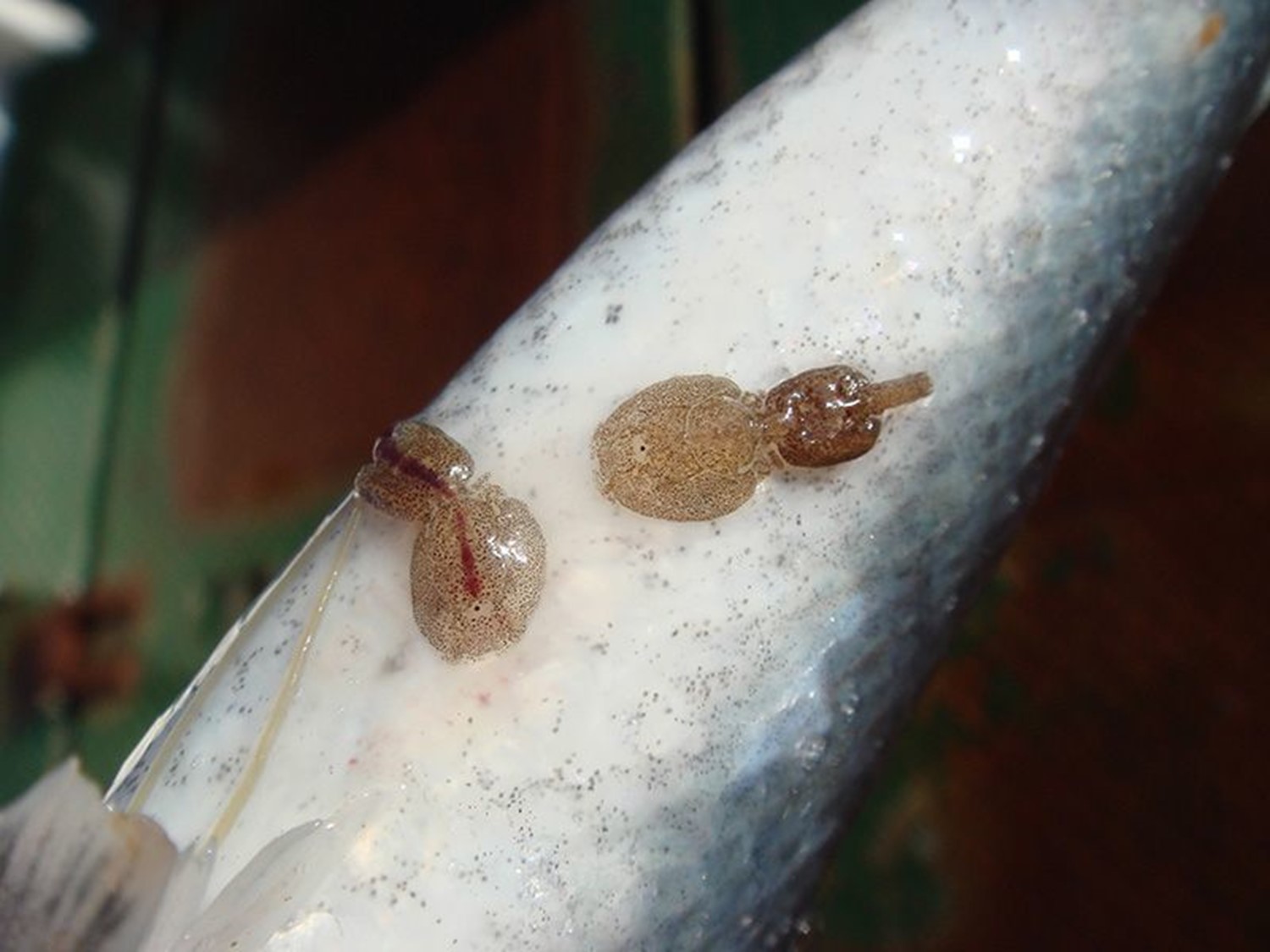RESEARCH: in the attempt to get rid of salmon lice there are multiple methods being tried to prevent the lice from coming into contact with the farmed fish. These are to a large extent reliant on the salmon louse travelling in the few topmost metres of the sea. Research conducted in collaboration between Fiskaaling and two BSc students at the University of the Faroe Islands, on the other hand, shows that the louse also travels relatively deep in the sea.
On December 20 Nigro Bjarki Hermansen and Oddmar við Korkusá defended their BSc project “Horizontal and Vertical Dispersal of Salmon Louse (Lepeophtheirus salmonis) Nauplia and Infectious Copepods” at the Department of Science and Technology at the University of the Faroe Islands.
They have conducted research by collecting lice from various depths with a pump, as well as collected samples from just beneath the surface of the sea with a dip net, which is the most common procedure.
The research showed that the pump was a very well-suited tool for sampling of lice far down in the sea. Additionally, it can be an advantage to collect samples with a pump in the summer when there is a lot of vegetation in the sea, which blocks up the dip net. Research was conducted on the surface of the sea and at 10 and 20 metres depth respectively. This showed that salmon lice were present at all depths.
In the attempt to get rid of salmon lice there are multiple methods, which aim to prevent the louse from coming into contact with the farmed fish. These methods are to a large extent reliant on the salmon louse being present in the few topmost metres of the sea. The research conducted by the two BSc students in collaboration with Fiskaaling, on the other hand, showed that the louse was present well further down in the see than previously thought.
Nigro Bjarki Hermansen’s and Oddmar við Korkusá’s defence went well and they were awarded 12 (the highest possible mark on the scale) for their project. Their supervisors were Eilif Gaard from Havstovan (the Faroe Marine Research Institute) and Øystein Patursson and Gunnvør á Norði from Fiskaaling. The external examiner was Kirstin Eliasen from Fiskaaling.
The director of Fiskaaling emphasises that the company places great importance on working in collaboration with BSc students and thereby furthering their competence.
- In addition to being an investment in the future, this gives us the opportunity to carry out various smaller projects, which play a part in increasing our level of knowledge, says Jóhanna Lava Køtlum.


